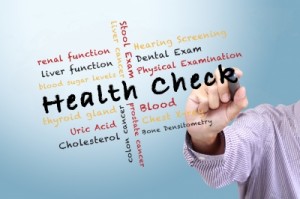 A friend of mine called me recently and said she’d read an article about a really important test to assess your wellness and she was concerned because she had gone through her records and her doctor had never given her that test. She wondered if she should demand it or change doctors or what she should do.
A friend of mine called me recently and said she’d read an article about a really important test to assess your wellness and she was concerned because she had gone through her records and her doctor had never given her that test. She wondered if she should demand it or change doctors or what she should do.
When she told me the article was about homocysteine, I knew she had read that high levels of homocysteine in the blood are reliable risk factors for heart attack, stroke, diabetes, cancer, neurological conditions such as Alzheiner’s and Parkinson’s, thyroid concerns, infertility, depression, digestive disorders and chronic pain.
High levels of homocysteine impact your body in a number of harmful ways including accelerating aging and depressing your immune system so I could see why it caught her attention, even though many of us know little if anything about it. And I also understood why she had not been tested, as most doctors do not test for homocysteine levels for several reasons.
Bear with me for a moment while we go into some science and let’s look at what homocysteine is and why it matters.
Homocysteine is an intermediary amino acid. Amino acids are the building blocks of protein and those proteins control virtually all cellular process as well as catalyze most reactions in living cells. There are 20 essential amino acids that the body requires to function: 10 of which the body can make, and 10 of which must come from our diets.
Homocysteine is not one of those essential 20, but rather it is made from another amino acid called methionine, which is one of the essential amino acids we must get from food.
We get methionine from protein-rich foods such as fish and eggs and sunflower seeds.
During what’s called the methionine cycle, methionine is converted to a substance known as S-adenosylmethionine (SAMe). SAMe performs an important function in its ability to donate methyl groups as needed during chemical processes throughout the body. When SAMe donates its methyl group, homocysteine is synthesized. Scientists would say the SAMe has been methylated which means it has lost a methyl group. This is important because the methylation process regulates gene expression, protein function and RNA metabolism.
All homocysteine in the body is created during this methionine cycle and most of it ends up bound to plasma and stored. But it can be released into the bloodstream when there are changes in the body’s biochemistry that are not ideal, so high levels of homocysteine are linked to a variety of specific health problems.
Once homocysteine is released in the blood, one of two things can happen to metabolize it. First, it can be remethylated back into methionine. This process requires folic acid (folate), vitamin B12, vitamin B2, zinc, magnesium and TMG (or trimethylglycine) from choline. Most of the body’s homocysteine goes this route, known as the remethylation pathway, which creates more SAMe to support further healthy methylation..
The other possible option for the homocysteine is that it can be utilized to create cysteine which is then converted into glutathione, a powerful antioxidant. When the body is under oxidative stress, this conversion process, known as the transsulfuration pathway because it produces sulfate byproducts, can be accelerated. The sulfate products are normally flushed from the body through urination. This pathway requires B6, B2, and zinc for proper function.
Both SAMe and glutathione benefit the body in important ways (glutathione is an anti-aging, antioxidant, detoxifying agent and SAMe has been shown to effectively treat depression, osteoarthritis, and liver disease and it affects our cells’ ability to grow and function properly) so we want our bodies to be able to convert homocysteine efficiently. When the conversion process goes awry, homocysteine levels will increase.
High homocysteine levels have been shown to increase free radical oxidation in the body, and the damage that goes along with them. This can accelerate aging. High homocysteine levels can also damage artery walls in one of several ways: it can contribute to atherosclerosis, or thickening of the artery walls; it can increase the likelihood of your blood clotting, potentially leading to a stroke; and it can lower the nitric oxide in your blood. Nitric oxide plays a critical role in healthy and flexible artery wall maintenance.
High homocysteine levels also impact your immune system, since weakened conversion processes to glutathione means less glutathione will be present and less antioxidant protection will be available to the body. And high homocysteine levels promote higher levels of two chemicals the body uses to promote inflammation, arachidoic acid and prostaglandin E2 (PGE2). As we learned in the cholesterol article, inflammation is a necessary and healthy part of our normal body function. But chronic inflammation can cause permanent damage to systems and tissues such as nerves, joints, and arteries and can also result in chronic pain.
Because of the inflammatory concern and the impact on antioxidation, some argue homocysteine is a marker for a higher risk of most every chronic condition, including cancer. At a minimum, when homocysteine levels are high, we know that something is wrong inside the body and some important process is not functioning as it should. If homocysteine is such an important indicator, why aren’t we hearing more about it?
There are a number of reasons. First, the test is relatively expensive and is rarely covered by insurance. As a result, it’s not readily available. Another reason is that there are currently no patented drugs for lowering homocysteine levels, so pharmaceutical companies have no interested in contributing to the marketing, which is how most medical conditions gain attention in today’s world. Another reason not to test would be that some doctors might not know what to tell their patients if the test came back high; without a drug to prescribe the only answer would be to change your diet, something not every physician is comfortable tackling in a brief office visit.
If your doctor decides to test you, which typically only occurs with cardiologists working with high risk heart patients, you’ll want to see a score of below 8.9 units. (obviously, the lower, the better). In between 9 and 19.9 units, your risk will increase from significant to extremely high, in correlation with the increase, of dying a premature death from a chronic condition or degenerative disease. Over 20 units, you’re at risk of heart attack or stroke, right now.
Whether you are tested or not, if you would like to improve your homocysteine levels, the prescription is clear: change your diet and your lifestyle. Eat mainly healthy fats and oils like omega 3s and avoid bad fats like trans fats. Increase your consumption of vegetables: shoot for half of your calories from vegetables, especially dark leafy green ones! Make sure your protein sources are high quality ones like organic eggs, wild fish, legumes, and small amounts of nuts and seeds.
Look to ensure your diet is rich with folate, vitamins B12, B6, B2, zinc and magnesium. (If you eat as above, it should be. If not supplement with a whole food supplement.) A greens superfood powder or pill may also be helpful if you find your diet lacking. And reduce stress, a known pro-inflammatory.
A special note to vegetarians and vegans: while generally it is stated that high homocysteine levels result from a diet too heavy in meat and too light in vegetables, studies have actually shown that many vegans and vegetarians have high homocysteine levels. One study showed vegans to have 50% higher homocysteine levels and vegetarians to have 30% higher homocysteine levels than their omnivore counterparts. This is because their bodies lack the B12 required for the conversion processes. (B12 is typically found in animal protein.)
Vegetarians were found to have 37% less (and vegans 59% less) B12 than the omnivore group, enough to constitute clinical deficiency in 78% of the vegans and 26% of the vegetarians. The study also showed that people eating vegan and vegetarian diets lacked the essential amino acid methionine because the levels in plants are lower than those found in meat. Vegetarians and especially vegans need to look to add B12 to their diets through injections, sublingual (under tongue) or spray B12 supplements.
Homocysteine may not yet be fully understood, but its importance is definitely being recognized. If you are a high risk for heart concerns, you may want to push for a homocysteine test. But because the prescription will be to change your diet, you may want to consider making some of those changes, whether you are tested or not.
To your wellness and health: your true wealth!
Inger
Author: Inger Pols is the Editor of the New England Health Advisory and Author/Creator, Finally Make It Happen, the proven process to get what you want. Get a free special report on The Truth About Sugar: It’s Not All Equal. Learn more about Inger and receive her free bestselling ebook What Your Doctor Isn’t Telling You.
Article Photo: courtesy of KROMKRATHOG | FreeDigitalPhotos.net



 Follow me on Twitter
Follow me on Twitter 